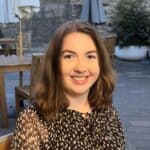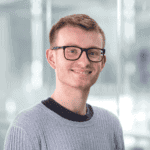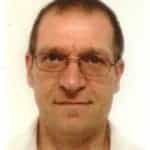Profile
SJ Paines
-
About Me:
I live with my wife near Brighton. I work as a patent attorney. In my free time, I lift weights, sing in a choir and read books (Discworld is my favourite series!) I love to travel and enjoy hiking and sailing.
-
Read more
- I talk a lot (my teachers might have said I talk too much, sometimes!) and I enjoy meeting new people and finding out what makes them tick. I have autism and ADHD, which makes it difficult for me to focus sometimes. I like to go to the gym and lift weights as an outlet for my energy.
I love bright colours and I have painted all of the rooms in my house in a different colour. I wear polo shirts and jeans to work and I have a large collection of brightly coloured earrings to match my moods. I prefer being casual to being formal.
I grew up on a council estate in North Yorkshire. Not many people from my area went to university. I got to where I am now through hard work and a bit of luck. My motto for life is “grab every opportunity”.
I have lived in loads of different places – I grew up in Yorkshire, went to Southampton for university, then to Buckinghamshire, Kent, Salford, Manchester and finally, Brighton. I also lived in Portugal for a year while I was a student.
I speak German, French and Portuguese (as well as my native English) and I have been teaching myself Welsh on and off for the last 5 years. I love language and being able to communicate with people all over the world. Whenever I travel to a new country, I make sure I learn at least how to say hello, please and thank you in the local language. I love that it puts a smile on people’s faces to hear you say the basics in their own language.
I like to build things. Recently, my wife and I built a dining table that was big enough to fit 12 people around it so we could have all of her family round for Christmas dinner. The next project is to build a bed for the spare bedroom. We have to wait until the weather is nicer as we need to cut all the wood outside. I don’t want lots of sawdust in the house!
-
My pronouns are:
they/them
-
My Work:
I’m a science lawyer! (Patent attorney) I help inventors to protect their inventions and to stop other people from stealing them.
-
Read more
I work with inventors and companies to help them protect their inventions using patents. When you get a patent for an invention, you can stop someone else from using that invention without your permission.
My technical areas include electronics (such as computers, mobile phones, displays and TVs), cars and planes, building services (such as lifts, air-conditioning systems and fire alarm and sprinkler systems), electricity generation and battery technology, and software. The most interesting patents I have worked on include ones relating to how you make a computer understand what you are saying (think Alexa, Siri, Google Home Assistant, etc.).
-
My Typical Day:
I get up at 7.30am, have my breakfast and get ready for work. I get the train to work and start at 8.30am. I check my emails and read any letters from the patent office. I read technical documents and decide how I am going to argue that my client should be allowed a patent. I write my arguments in a letter and send it to the patent office. I might have a phone call with an inventor to talk about their latest invention. I go home at 4.30pm.
-
Read more
My days vary depending on what the most urgent tasks on my to-do list are that day. Nearly everything I do has a deadline so I use those deadlines to determine which task to do first.
I might have a meeting with an inventor to talk about their latest invention and get all of the details needed for a patent application. Then I would write the patent application for the new invention. The application contains a description of the invention and a list of claims. The claims each set out in a single sentence what the most important features of the invention are and if there are any optional features. The application may also contain drawings of the invention. Writing an application takes a number of days (the more complicated the invention, the longer it takes!)
Once an application has been filed, the examiners at the patent office have to determine whether a patent should be granted (allowed) for that invention. They search for documents that show whether another person has already come up with this idea. If they think they have found another document that proves that somebody else had the idea first, they write to me with their objections (reasons why the client’s application should not be granted). Then I would have to read the objections and advise the client what to do next. Usually, this means that I have to decide how to argue against the objections.
I have many different clients with applications at different stages. We call each application a separate case. In a typical day, I might write part of a patent application for one case or respond to objections against one or two cases. I might also use these tasks to help train some of our trainees who are on their way to becoming qualified patent attorneys.
After a patent has been granted, the inventor or applicant can use it to stop other people from using their invention without permission. If a client thinks somebody has copied their invention without permission, I might have to spend some of my day comparing my client’s product with the one that somebody else has made to see if the other person copied it. This could mean comparing drawings and descriptions of each product but sometimes I need to get hands-on and take things apart to see how they are made. Recently I had to take apart three different infrared temperature sensors (like the ones they use to check your temperature without having to touch you) to see whether the internal workings were the same. As it turned out, there were some differences so I could tell my client that they hadn’t been copied.
One of the best things about my job in my opinion is the variety of work that I do. I get to read about lots of different types of technology and I also get to do different tasks every day so that no two days are ever the same.
-
What I'd do with the prize money:
I would donate my prize money to Generating Genius to help further their work with young Black people and those from low-income backgrounds who aspire to STEM careers. Generating Genius “combines academic and professional engagement to inspire, motivate and empower our students”. They run programmes to support students in Years 12 and 13 to get into STEM courses at university, and also to help those who are at university to get into STEM careers. Through donations and sponsorships, the programmes run by Generating Genius are free to participants.
-
Education:
I went to St Francis Xavier Secondary School in Richmond, North Yorkshire from Year 7 to Year 11. I achieved 11 GCSEs. In Year 11, I tried out for the Army Sixth Form College (Welbeck) but discovered after having my medical assessment that I am partially deaf in one ear. That put an end to my Army career dreams. I was absolutely gutted but it all worked out in the end.
I attended Queen Elizabeth Sixth Form College in Darlington, Co. Durham for Years 12 and 13. I studied A Levels in Maths, Physics, Chemistry, French and German. I wanted to keep my options open as I wasn’t sure whether I wanted to study languages or engineering at university. I dropped A Level Maths halfway through Year 13 after I decided to apply for a degree in modern languages. I didn’t want to spread my time too thinly so I focused on getting high grades in 4 subjects instead of 5. I have an AS level in Maths because I completed the Year 12 course.
Then I went to University of Southampton to study French, German and Portuguese. I lived in Portugal for my third year as part of the ERASMUS programme. Although I had applied to a number of universities, my real choice was between Liverpool and Southampton as they were the only courses that let you pick up a third language from scratch at that time. I chose Portuguese over Russian (and therefore Southampton over Liverpool) and the rest is history.
When I started working at a translation company, they noticed I had technical A-levels and asked if I wanted to become a technical translator. I said yes! They paid my course fees for me to do an HND (first two years of a degree course) and then a further two years to get a full degree in Electrical and Electronic Engineering. While I was studying, I went to uni at London South Bank one day a week and I worked the other four days as a translator.
I realised that I didn’t want to be a translator forever so I started looking for other options. I realised that with my engineering degree I could apply to be a patent attorney, so I did!
Even once I started to work as a patent attorney, my education was not done. I had to sit 16 more exams in order to become qualified as a Chartered (UK) Patent Attorney and a European Patent Attorney.
-
Qualifications:
GCSEs: Maths (A), Double Science (A*A*), English Language (A*), English Literature (A), French (A*), German (A*), History (A*), R.E. (A), Resistant Materials (A) and Music (B)
AS Level: Maths (A)
A Levels: French (A), German (A), Physics (A), Chemistry (A)
BA (Hons) Modern Languages (French, German and Portuguese) (First Class)
HND Electrical and Electronic Engineering (Distinction)
BEng (Hons) Electrical and Electronic Engineering (First Class)
Chartered Patent Attorney
European Patent Attorney
-
Work History:
My first jobs were waiting-on (as we say where I’m from!) in pubs and restaurants. I took any waiting job that was going because I was desperate to save money to pay for driving lessons and buy a car when I was 17 (and I did). I also worked as a supervisor in a Little Chef through sixth form and uni to have a bit of spending money.
My first “real” job after graduating was as a proofreader for a translation company called RWS. I had to check that the translators hadn’t made any mistakes in their translations. Eventually, I was promoted to a translator position with RWS. The translations I worked on were patents and technical manuals relating to electrical and electronic engineering. I remember learning a lot about car battery technology during those days!
After completing my engineering degree, I started working for a law firm called Marks & Clerk. I did all of my training with them over 6 years and became a fully qualified UK and European patent attorney. Then my mother-in-law became ill and we wanted to move to the south coast to be closer to her (we were living in Manchester at the time). Unfortunately, I couldn’t continue in my job with Marks & Clerk from my new home in Brighton, so I joined my current firm, Dehns.
-
Current Job:
I am currently an Associate in the Engineering team at Dehns. I work independently (although I can of course ask my colleagues for their help!) and I also help to train the next generation. I have been working here for just over two years now.
-
Employer:
Dehns is a firm of patent and trademark attorneys with offices all over the UK and Europe.
-
My Interview
-
What did you want to be after you left school?
I wanted to be an Army officer in the Royal Electrical and Mechanical Engineers or the Intelligence Corps
Were you ever in trouble at school?
I did end up in a few lunchtime detentions, mostly for talking too much. My tech teacher used to make us colour in chessboard patterns in the tiny squares on graph paper - his detentions were the worst!
If you weren't doing this job, what would you choose instead?
I think I would choose something in education as I have discovered that I really like teaching people
Who is your favourite singer or band?
My favourite band is Queen. Freddie Mercury had an amazing voice.
What's your favourite food?
Macaroni cheese
If you had 3 wishes for yourself what would they be? - be honest!
I would wish to always be fit and healthy, to be able to travel anywhere I wanted in the world on a whim, and to be able to eat as much chocolate as I wanted without any negative health effects!
Tell us a joke.
Why do scuba divers fall backwards out of the boat? Because if they fell forwards, they'd still be in the boat!
-





